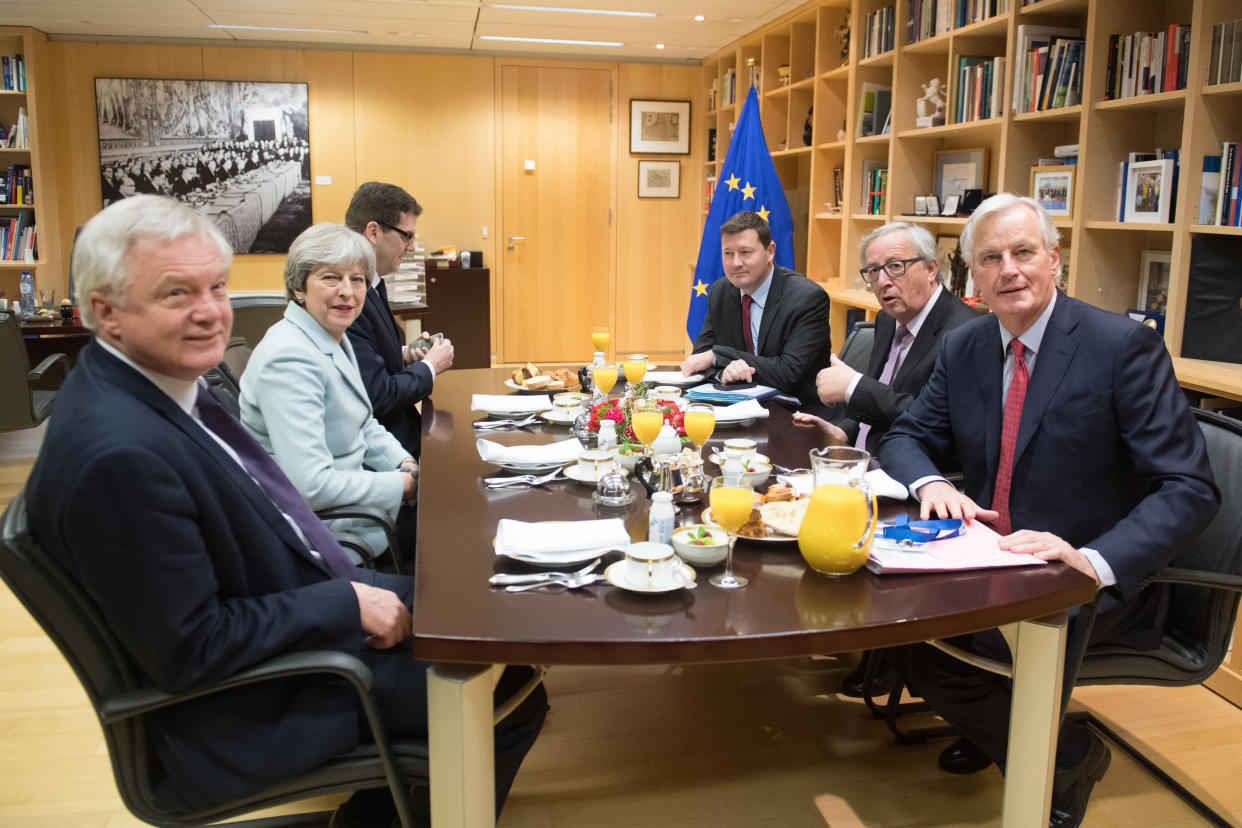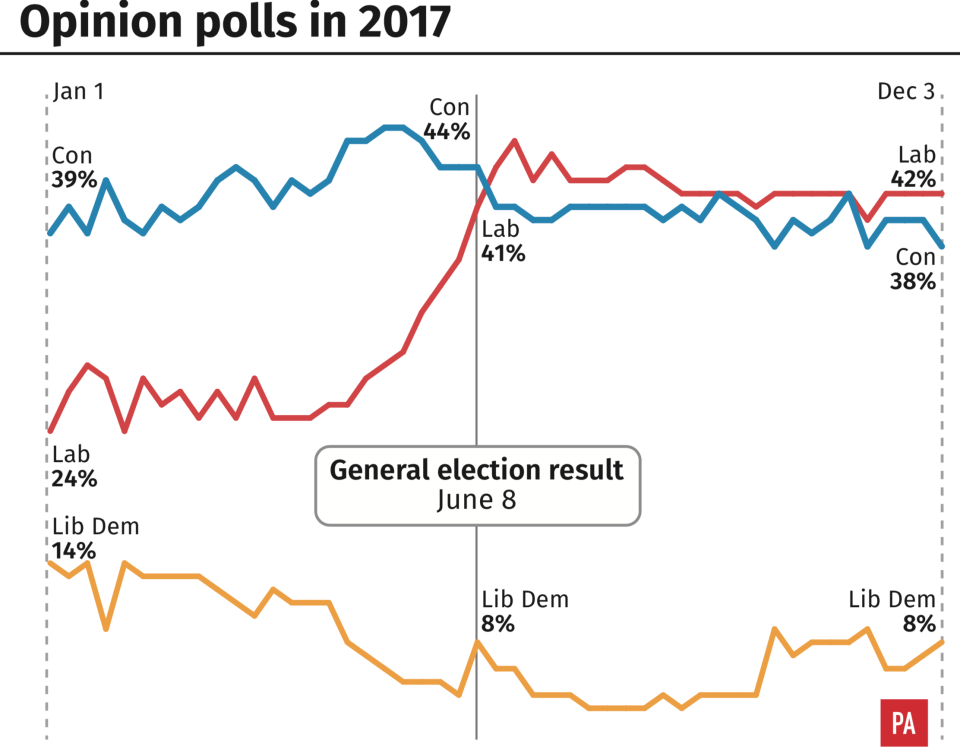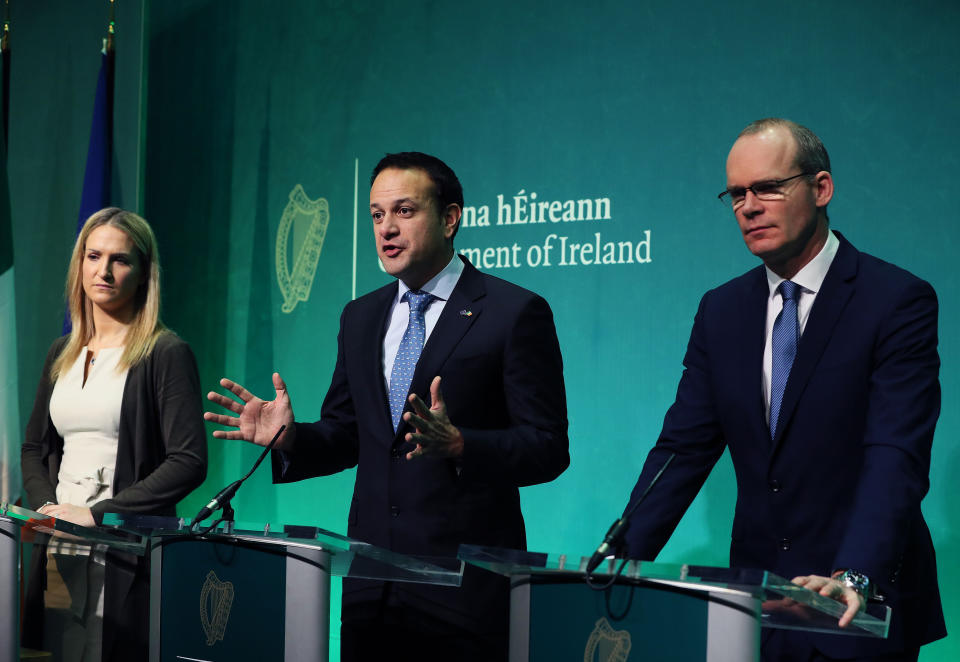UK will pay almost £40 billion to leave the EU

Theresa May has struck a last-minute ‘breakthrough’ Brexit deal that will see the UK pay £39bn to leave the European Union.
The deal also contained an agreement ruling out a “hard border” with Ireland and the protection of rights for UK citizens living in the EU and vice versa.
The deal – described as a ‘personal success’ for Mrs May – though is already proving controversial within her own party.
Some Tories are said to be upset at the cost of the bill, even though it is smaller than has previously been estimated, and there is a real concern that the agreement allows for European judges to have powers over British law until 2029 .
The size of the so-called ‘divorce bill’ emerged after Britain and EU leaders agreed a deal on the first phase of Brexit talks, with a deadline fast approaching and Theresa May’s government seemingly atb risk
European Commission president Jean-Claude Juncker said the agreement would allow the remaining 27 EU states give a green light to the start of trade talks next Thursday.
The breakthrough was hailed by Prime Minister Theresa May as ‘a hard-won agreement in all our interests’, while European Commission president Jean-Claude Juncker said it represented ‘sufficient progress’ for negotiations to move on to their second phase’.
The estimated Brexit bill is significantly lower than suggested by previous leaks, which put it at £50 billion or more.

It covers Britain’s share of the EU’s budget up to the end of 2020, as well as outstanding debts and liabilities for items such as the pensions of staff at European institutions.
It will be paid over several years and the exact figure is unlikely to be known for some time.
The Commission’s announcement that trade talks can begin was welcomed by business leaders, who had warned that companies would begin activating plans to move staff and activities abroad if no progress was made by Christmas. The pound rose on the announcement.
Senior Cabinet Brexiteers Boris Johnson and Michael Gove also gave their public blessing to the deal.
The final details were thrashed out in the early hours of Friday by Mrs May and Democratic Unionist Party leader Arlene Foster, who blocked a previous version of the agreement on Monday with her last-minute objection to provisions she feared would create a customs border between Northern Ireland and the mainland.
Mrs Foster said ‘substantial changes’ to the text would mean there was ‘no red line down the Irish Sea’ and no ‘special status'” for Northern Ireland.
However, in a provision likely to spark concerns among some backers of Brexit, the document says the European Court of Justice will continue to have a role overseeing the rights of EU citizens in the UK for eight years after Brexit.
It also says the UK will be required to continue contributions to the EU budget up to the end of 2020 ‘as if it had remained in the Union’, and will be liable for its share of outstanding financial commitments and liabilities up to that date.
The financial settlement ‘will be drawn up and paid in euro’.
European Council president Donald Tusk confirmed he has sent the EU27 proposed guidelines for a new mandate for chief negotiator Michel Barnier to begin discussions on the transition period, as well as ‘exploratory talks’ on the trade relationship.
He called for ‘more clarity’ from the UK over its hopes for trade relations.
‘While being satisfied with today’s agreement, which is obviously a personal success for Prime Minister Theresa May, let us remember that the most difficult challenge is still ahead,’ Mr Tusk warned.

BREXIT BREAKTHROUGH – MORE FROM YAHOO UK
Brexit deal: What it means for UK travellers, from Ehic cards to passports for Ireland
Brexit deal: the inside story of the 12 hours when Theresa May secured a UK deal to leave EU
Why not much remains of Theresa May’s red lines after the Brexit deal
Brexit deal agreement in full: Read the report published after phase one of talks
Here are the key points of the joint report agreed between the UK and EU on the expected content of Britain’s Withdrawal Agreement.
CITIZENS’ RIGHTS
Reciprocal protection for EU citizens in the UK and Britons living in the remaining 27 member-states who are resident at the time of the UK’s withdrawal, along with their family members.
Discrimination against these people on grounds of nationality to be prohibited.
Right to bring in spouses, civil partners and children forming part of the family at the time of Brexit, as well as any children born or adopted after that date.
The UK and EU can require one another’s nationals to apply for residence status and obtain documents to prove their right to stay, through a ‘transparent, smooth and streamlined’ process.
Applicants can be submitted to ‘criminality and security checks’ which could result in their removal.
EU and UK nationals living in each other’s territories will retain residence rights for up to five years if they move elsewhere;
Provisions for citizens’ rights will be incorporated in UK law.
For eight years after Brexit, UK courts will be able to refer cases involving EU nationals to the European Court of Justice for interpretation.
New independent national authority to monitor the implementation of EU citzens’ rights in the UK.

IRISH BORDER
Both sides agree to protect the Good Friday Agreement and avoid a ‘hard border’ between Northern Ireland and the Republic.
If there is no trade deal, the UK will maintain ‘full alignment’ with single market and customs union rules that ‘support North-South co-operation, the all-island economy and the protection of the 1998 Agreement’.
If there is no deal, the UK will ensure that no new regulatory barriers develop between Northern Ireland and the mainland and that businesses in the province continue to enjoy ‘unfettered access’ to the UK internal market.
Right for all Northern Irish people to take British or Irish nationality is preserved.
Common Travel Area to continue to operate.

FINANCIAL SETTLEMENT
UK to contribute to the EU budget up to the end of 2020 ‘as if it had remained in the Union’, and to continue to finance EU projects funded by the 2014-20 budget until they are completed.
UK to pay its share of outstanding unpaid EU commitments – known as the Reste A Liquider (RAL) – and to the financing of EU liabilities at December 31 2020.
Financial settlement to be ‘drawn up and paid in euro’.
Britain to receive a share of financial benefits that would have fallen to it as a member of the EU before 2020.
Capital in European Investment Bank to be returned to the UK in 12 annual instalments starting at the end of 2019.
UK to honour commitments to fund schemes to assist refugees in Turkey and displaced people in Africa.

 Yahoo News
Yahoo News 

